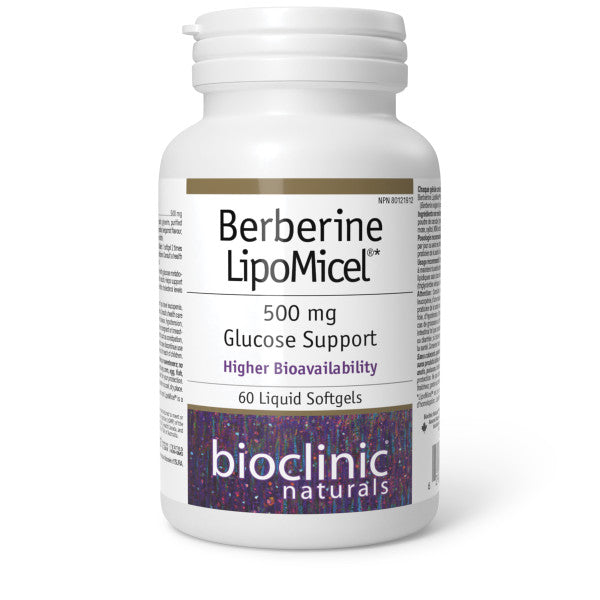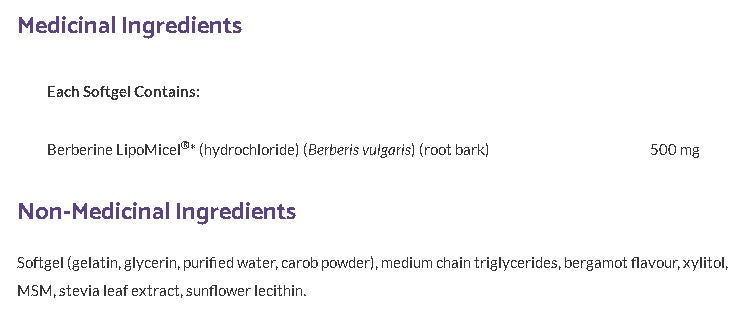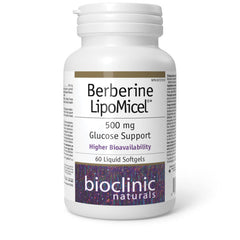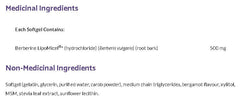



Berberine LipoMicel · 500 mg
- 43.99$
0.00$- 43.99$
- Unit price
- per
Description
x- Provides 500 mg of berberine HCl per softgel, the dose used in clinical trials for glucose and lipid control.
- Uses LipoMicel technology, which creates a matrix of liquid micelles dispersing berberine into tiny microdroplets, resulting in a highly stable delivery system for better absorption than standard forms.
- Promotes healthy glucose metabolism through multiple mechanisms, including improving insulin sensitivity.
has favorable effects on blood lipids, including a reduction in triglycerides and total and LDL cholesterol - Activates Nrf-2, a key regulator of antioxidant gene transcription and prevention of glucose-induced neurotoxicity.
- Helps maintain cardiovascular health
- Berberis vulgaris (European barberry) extract
Although berberine has traditionally been used to treat gastrointestinal symptoms, current research shows it is also beneficial for blood sugar regulation, cardiovascular health, and antioxidant activity. It helps lower blood sugar by slowing carbohydrate absorption and promoting insulin sensitivity, while lowering HbA1c levels. It helps reduce waist circumference and body weight, blood pressure, and triglycerides in metabolic syndrome. It also helps reduce blood pressure, total and LDL cholesterol, and triglyceride levels.
Berberine improves insulin sensitivity by inhibiting alpha-glucosidase activity, increasing insulin receptors in peripheral tissues, activating AMPK, and inhibiting UHRF1. In controlled trials, it reduced HbA1c levels with comparable efficacy to standard therapy. Berberine also activates Nrf2, a key regulator of cellular antioxidant defense, and attenuates glucose-induced neurotoxicity.
The bioavailability of berberine supplements can vary considerably. Improved dosage forms, such as LipoMicel berberine, enhance bioavailability, provide resistance to intestinal degradation, and may also improve intracellular delivery. A crossover pilot study showed that LipoMicel berberine was effective in lowering blood glucose levels by 12% after two 500 mg doses.
Produits recommandés
Produits récemment consultés
- Choosing a selection results in a full page refresh.



